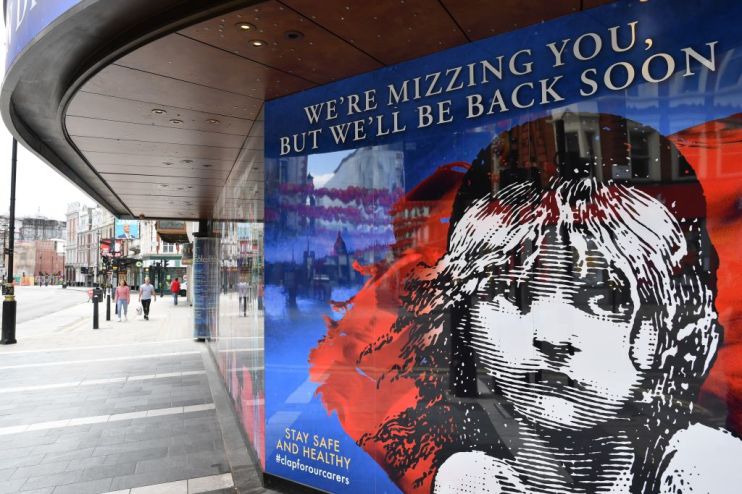The creative sector is vital to London – we must save it before it is too late

Save our arts. That is the rallying call. It is a worthy one. The UK’s creative sector is a dynamic part of the economy, but it has been among the areas hit hardest by the coronavirus crisis and looks likely to recover last.
While areas like retail and housing are rebounding solidly, the arts are prevented from returning to business as usual because of the vaccine gap and the necessary social distancing that entails.
This is threatening a broad range of cultural treasures from live music venues to orchestras. The jobs of many creatives are at risk. Worse may be to come. Many local theatres, heavily dependent upon the financial windfall from a successful pantomime season, may not survive the winter.
The government has provided support, including an initial £1.57bn rescue plan. As welcome as this is, it is insufficient and more help needs to be provided, as it has been in countries like Germany and France.
This is not like bailing out an ailing industry. Further government finance would be supporting a thriving sector through an external shock and a vaccine gap phase, thus preventing lasting damage.
Ahead of the virus, the creative sector was one of the fastest growing parts of the economy in recent decades, generating jobs at twice the pace of the whole country.
In 2017 the independent Bazalgette Review of the creative sector foresaw it adding an additional 1m net new jobs by 2030. As things currently stand those jobs are a distant hope.
The creative sector accounts for 5.8 per cent of the economy. Latest data shows that in 2018 it added £111.7bn of gross value added. This is made up of nine sub-sectors, from IT, software and computer services (£45bn), to film, TV and radio (£21bn), music and the performing and visual arts (£9.2bn) to crafts (£300m).
From gaming in Dundee, festivals in Edinburgh to symphony orchestras in Birmingham and musicals in the West End it is a vibrant national industry.
The lockdown has also created an opportunity, as virtual content has removed barriers to entry while quality control has been exercised through the immediate reaction of online audiences. The biggest horror movie success of the summer was Host, depicting an online zoom call that becomes possessed.
The challenge is not only to bring back physical venues but to monetise online content across the arts from concerts to comedy. In this respect, The Creative Industries Federation recently produced an ideas packed report, Plan to Reimagine, including how to learn from video games, music, film and TV that already stream content via digital platforms or via aggregators.
Importantly, the creative sector’s economic might is not only in terms of the direct impact of income generated and jobs created. One of many lessons from this crisis has been to highlight the significant indirect role that creative industries perform.
Although evident nationwide, this is perhaps recognised most in London.
It is the vital ecosystem of clubs, bars and theatres that make urban areas an exciting and desirable place to work and visit, as well as to live. London without its workers, as we are seeing, is like a ghost town. But London’s uniqueness also owes much to its creative and cultural venues. Without them it would be a soulless place to work. It would start to lose its appeal.
This matters for London’s future post-Brexit, as its magnetism has helped support the City’s growth, cementing it as a great place to work for financiers from across the globe. Relocations to London rarely meet with resistance.
The creative sector helps promote London globally, and in terms of soft power, the UK’s cultural influence ranks second only to the US.
Thus, the vaccine gap is not the only challenge facing the creative sector. Another is the absence of workers who might decide to go out after work to bars, clubs and comedy venues. Returning to the office will help the arts just as its survival will help the City’s future.
The virus has highlighted the strong symbiotic relationship between the creative sector and the City. We must ensure both rebound intact.
Dr Gerard Lyons is chief economic strategist at Netwealth